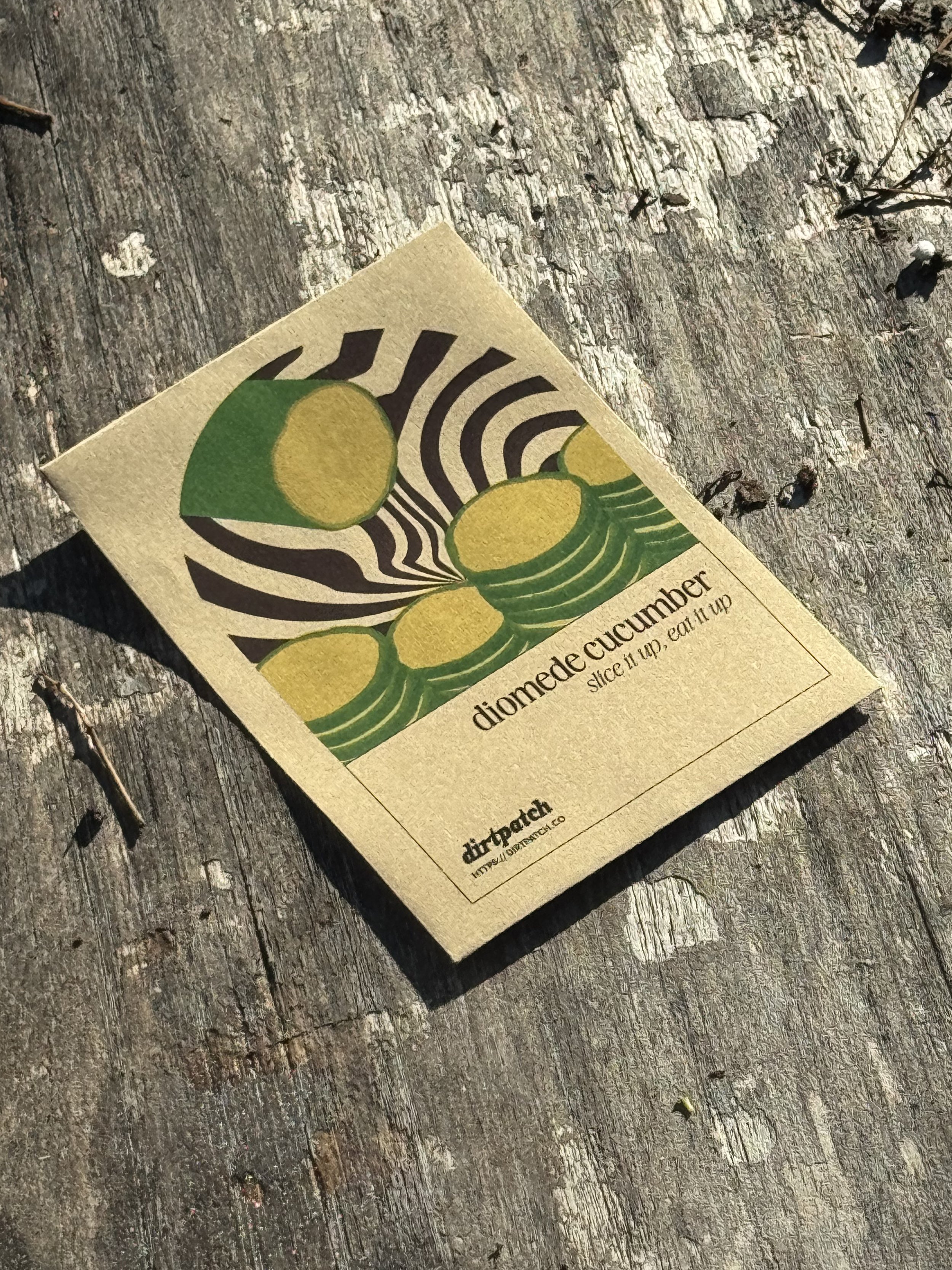Growing Instructions
Cucumbers are warm season vegetables, so plant them after your last frost when the soil has warmed to at least 65–70°. We recommend that you direct sow seeds since these plants are vigorous and transplants don’t always do well. Choose a site with full sun and rich, well-drained soil. Provide plenty of space or a trellis because Diomede is a vining cucumber that will happily climb. Plant seeds about 1/2" deep and 6" apart, then thin to one plant every 12" once they’ve sprouted. Maintain consistent moisture since cucumbers need regular watering (especially during flowering and fruiting) to develop juicy, non-bitter fruits. One important note: because Diomede produces female flowers, it's necessary to plant another cucumber variety to provide male flowers for pollination. Our seed packets also include a few seeds of one of these pollinator varieties, so make sure to plant all the seeds in the packet so the pollinators can do their job!
Harvest, Storage, and Use
Diomede cucumbers begin producing in about 50-60 days from seeding, and once they start, you’ll likely be picking daily. Harvest the fruits when they are dark green, firm, and about 8" long. They should feel firm and have a uniform green color. If they start turning yellow at the tips, they’re overripe. To harvest, gently twist off the fruit or snip the stem with pruners, being careful not to damage the vine. Regular harvesting (every day or so) will keep the plant producing new flowers and fruits. Store harvested cucumbers in the refrigerator crisper, and they’ll stay fresh for about a week.
These cucumbers are fantastic fresh, so slice them on to salads, layer them on sandwiches, or simply eat them straight from the garden as a refreshing snack. The skin is thin and not bitter, so no need to peel. Their crisp texture also makes them great for quick pickles.
| 👍 Good companions | Peas, beans, corn, and lentils (enrich soil with nitrogen and can act as living trellises or shade), root crops like radishes, beets, carrots, and onions, oregano, dill, chives, marigolds and nasturtiums (repel pests), sunflowers (serve as living trellises and boost pollination), garlic (reduces soil-borne wilt disease), lettuce and celery (have similar water needs but don't compete) | ||
| 👎 Bad companions | Potatoes (compete for nutrients), aromatic herbs like sage, basil, and rosemary (can stunt growth and affect flavor), mint, melons (competes for nutrients), fennel and eucalyptus (inhibit growth), and other squash family members like pumpkins and zucchini (shared pests) | ||
| Growing zones | 5-11 | Crop type | Annual |
| Crop difficulty | Easy | Seed type | Hybrid |
| Sowing method | Direct Sow | Containers? | Large / Bed |
| Sun req. | Full Sun | Ideal soil temp. | 70-80°F |
| Days to germination | 5-10 days | Days to maturity | 50-60 days |
| Seed spacing | 12" | Row spacing | 36" |
| Seed depth | 1/2" | Needs support? | Yes |

